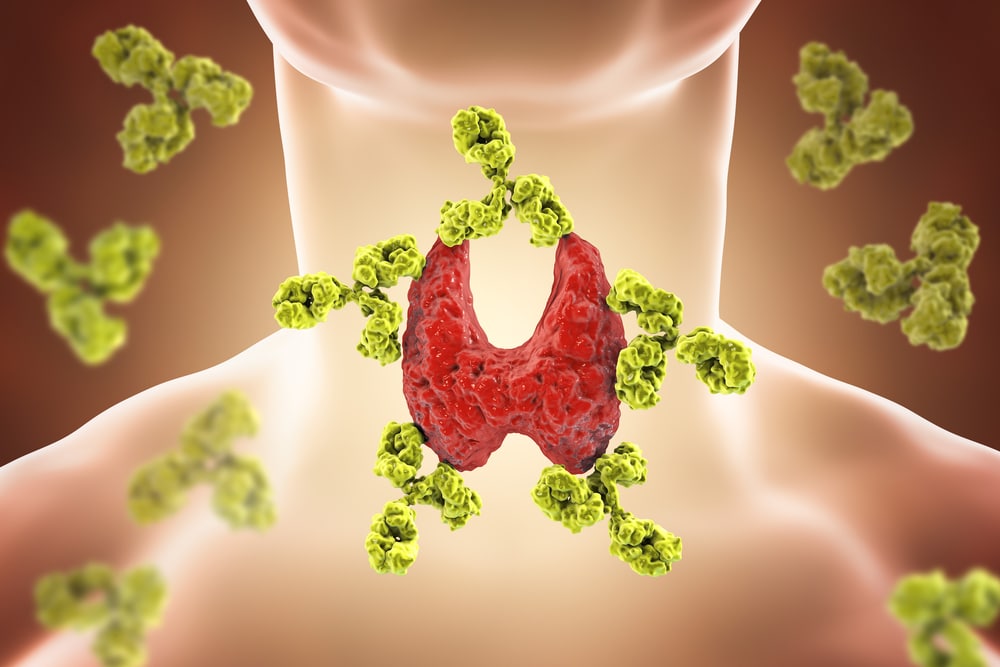
If you are a woman with a chronic health condition, there’s about a 1 in 3 chance that part of your problem has to do with your thyroid gland. (Men have this problem as well, but less than 10% of those with chronic health problems are thyroid-related).
By “chronic health problem,” I mean being tired, digestive problems, low sex drive, poor sleep, weight gain (or can’t lose weight), depression, anxiety, memory or concentration problems, and many more.
How to know you’re at risk:
- If you complain to your doctor about not feeling right and are told that nothing is wrong, it’s all normal, and you should learn to live with it.
- You just aren’t right and are having an increasingly difficult time convincing yourself that you are healthy.
There are two big problems with having a sluggish thyroid:
- Only about half of thyroid cases get diagnosed. There are many ways your body can hide thyroid insufficiency from showing on a blood test.
- Of the diagnosed and treated patients, the majority get little symptom relief from the only class of drugs commonly used for treatment.
Your conventional doctor is looking for a specific blood test, TSH, to be over 5.0 to diagnose you. Since this only happens with about half of thyroid patients, this “yes or no” approach isn’t workable. Further, if you do get diagnosed, there is little chance that the treatment offered will help you to feel better.
The real problem isn’t getting a correct diagnosis, because if you do get diagnosed, the treatment usually doesn’t work.
What treatments for thyroid problems work?
- First, test to find out what is happening: Blood tests that show not just TSH, but T3, T4, and autoimmune antibodies would be the first step. Metals are important to test. Adrenals and thyroid affect each other, so an adrenal workup is essential, as is basic allergy testing. Mineral deficiency testing is also required.
- Help the body reduce inflammation. 90% of sluggish thyroid cases are from an autoimmune disease called Hashimoto’s. The first step in helping the body to control autoimmune is to get the inflammation under control. Often we will eliminate food allergies permanently as a method of getting inflammation under control and improving the health of the gut. Diet changes factor in here also.
- Test for and resolve nutritional problems using supplementation and dietary improvements.
- In 25 years and many thousands of thyroid cases, we’ve found that interference with the thyroid system of the body by humanmade toxic chemicals is always a significant part of the problem. Called “Endocrine Disruptors” or “Endocrine Disrupting Chemicals,” these toxins can directly interfere with the hormones of the body. One of the most vulnerable body systems to this interference is the thyroid. We treat this problem using a proprietary acupressure treatment called “System Balancing Technique,” which helps the body to stop treating the Endocrine Disrupting Toxins as if they were natural hormones.
The most important thing:
The most important thing is YOU GETTING RESULTS.
The biggest threat to your results is anyone believing that they know more than your body about what treatment or help you need.
Should the thyroid be treated just because blood tests indicate that it is sluggish? 99+% of the health care world thinks the answer to this question is, “of course!” But what if your body needs your adrenals, or sex hormones, or digestion improved before it could heal the thyroid? In this case, the treatments for the thyroid would be completely ineffective! You’d be attempting to build the roof before you made the walls.
The EvecticsSM system tests for and addresses health problems in the order the body needs to heal. This approach is the best insurance possible for your results.
THE SOLUTION TO CHRONIC HEALTH CONDITIONS is to assist the body so that it continues to heal and become healthier and more resilient, finally achieving a good quality of life and stable health with labs showing normal ranges.
Find Out More
Here is a free booklet with the story of how I developed my techniques and how those techniques work (practical information that shows how your body works and how to start recovering your health for the rest of your life).
Watch this video for a seven-minute explanation of how to assist your body in healing itself.
Blog Subscription
Get Great Information about your Health
- Weekly blog posts with vital tips and warnings
- Interesting “pass it along” health facts
- Cutting edge natural healing techniques and advice

Watch this video for a seven-minute explanation of how to assist your body in healing itself.
